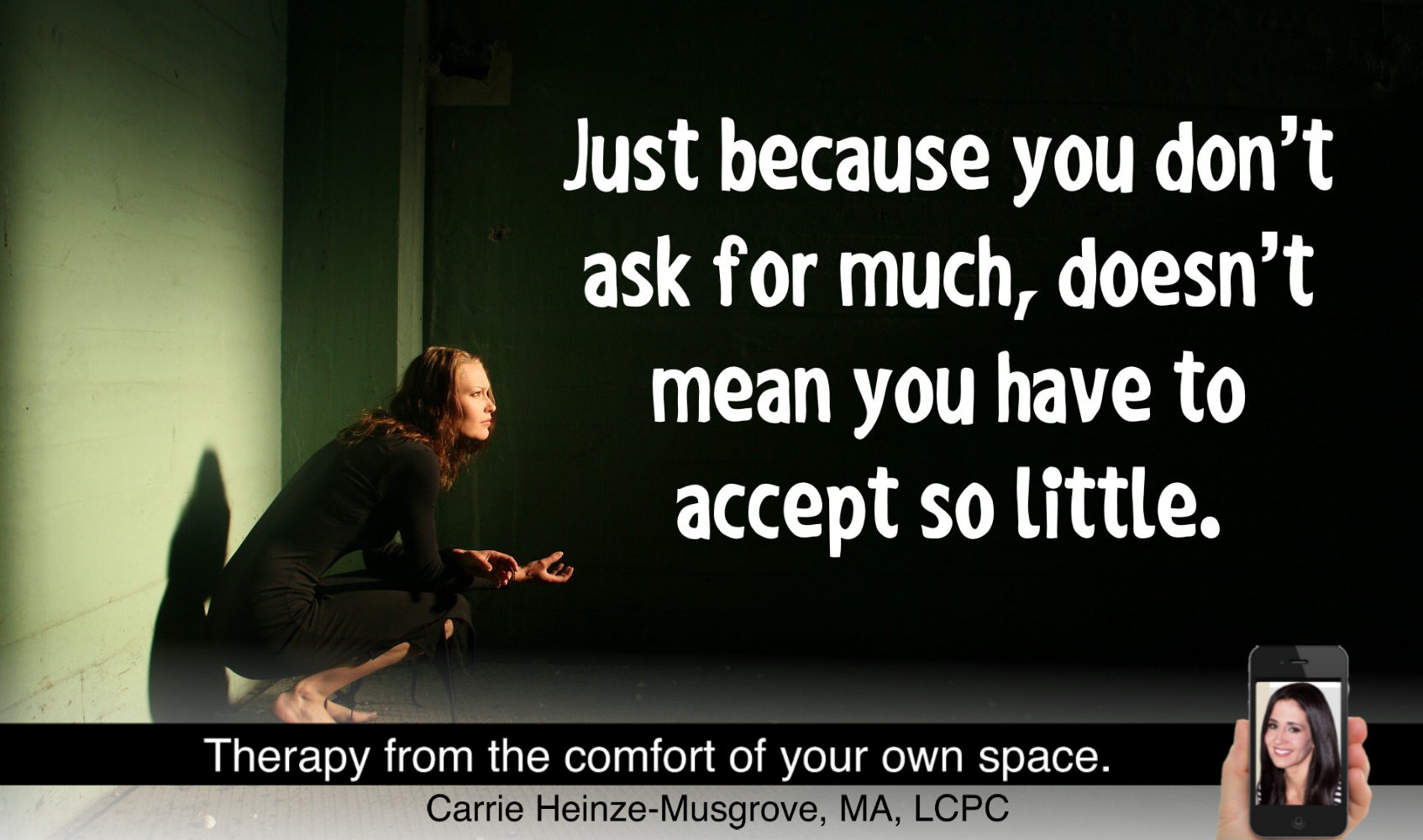Are you clinging to someone who is halfway out the door? Are you accepting bad behavior because you’re afraid it’s the only thing keeping this person around? Are you having a hard time asking for what you need because it seems pointless or because you might upset someone? Do the words, “he should just know?” pop into your head?
You may think that by not asking for much you are handling issues to the best of your ability. The reality, however, is you are likely enabling bad behavior. To enable someone means making it possible for them to continue unhealthy behavior.
Staying silent doesn’t fix the problem. For others to become aware that their behavior is unacceptable or that your needs aren’t being met, you need to tell them. Otherwise, you simply reinforce their behavior.
If you don’t ask for much, you’ll never get much. When you believe you cannot have what you desire, you settle for far less. This cycle of settling can lead to life-long feelings of deprivation, disappointment, inadequacy, and resentment.
In my years as a therapist, I have seen many who settle for less than they deserve in their lives. They excuse broken promises and overlook bad behaviors. They tolerate the intolerable and accommodate the inexcusable.
Why? Because it’s easier to be stuck in a familiar rut. There is a certain sense of putting yourself on the line when you actually ask for what you want. So we decide that whatever is in front of us in this moment is better than nothing. Self doubt and low self-esteem paralyzes us.
If you are not comfortable articulating you needs, how do you start going about it?
The good news is, with some simple steps and practice, you can get much more comfortable with the idea of speaking up for yourself. Let therapy help you clarify your wants, define your expectations and communicate your needs appropriately.
Developing your assertiveness can be rewarding and confidence-building. Even if that means having difficult and awkward conversations, remind yourself that you are worth the effort.
Carrie






